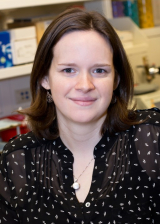ECM-targeted CAR T-cell therapy for high-grade glioma

Background: Pediatric gliomas have a relative five-year survival rate of below 30%, and represent the greatest cause of cancer-related deaths in pediatric patients. Current treatments such as chemotherapies, radiation, and/or surgery have limited success, as such, immunotherapy may be an ideal treatment option for these patients. Previously, we have created a form of immunotherapy which consists of immune cells known as T cells. These T cells are engineered to express a chimeric antigen receptor (CAR) which has the ability to seek out and kill tumor cells. Unfortunately, CAR T cell therapy has yet to prove successful in pediatric patients with solid tumors. Key factors limiting this success include: a limited array of targetable tumor associated antigens (TAAs), concerns in regard to ‘on target/off cancer toxicity’, and an immunosuppressive tumor micro-environment (TME). While there are concerted efforts to identify unique TAAs or improve existing CAR T cell constructs, we propose taking advantage of the extracellular matrix (ECM) that exists with the TME surrounding the tumor. This environment is unique to the tumors themselves and does not exist within the rest of the patient body. Successfully targeting this environment will effectively decrease toxicity.
Project Goal: To test this model, we propose targeting a major component of the ECM of tumors, the oncofetal splice variant of fibronectin (fibronectin-EDB; FN-EDB), which is not expressed by normal cells. We propose utilizing the single chain variable fragment (scFv) derived from L19, a monoclonal antibody specific to FN-EDB which has shown impressive tumor specificity in early phase clinical trials, to target the ECM and effectively decrease “on target/off target” toxicity. We will couple our FN-EDB environment-targeting T cell with a CAR designed to target another TAA, thus increasing specificity. As we propose to target the unique components of the microenvironment, as well as a TAA, our approach is uniquely specific and has the potential not only to be effective, but also to reduce treatment-related complications. Additionally, this approach could be readily tested in early phase clinical studies. Further, our approach is applicable not only to brain tumors, but to a broad range of solid tumors, as most tumors contain similar components within the microenvironment.
Project Update 2023: In the first year of the grant we had generated CAR T cells that recognize the environment surrounding tumor cells. Intriguingly, we found that these CAR T cells not only recognize the tumor environment but also directly recognize and kill tumor cells. During this funding period we have extended our studies and have published our initial results. and are currently optimizing our approach in preclinical models that closely. In the remaining funding period of our grant we are planning to optimize our findings with the ultimate goal of developing an early phase clinical study. In addition, we are planning to develop approaches to target additional antigens within the tumor environment.

